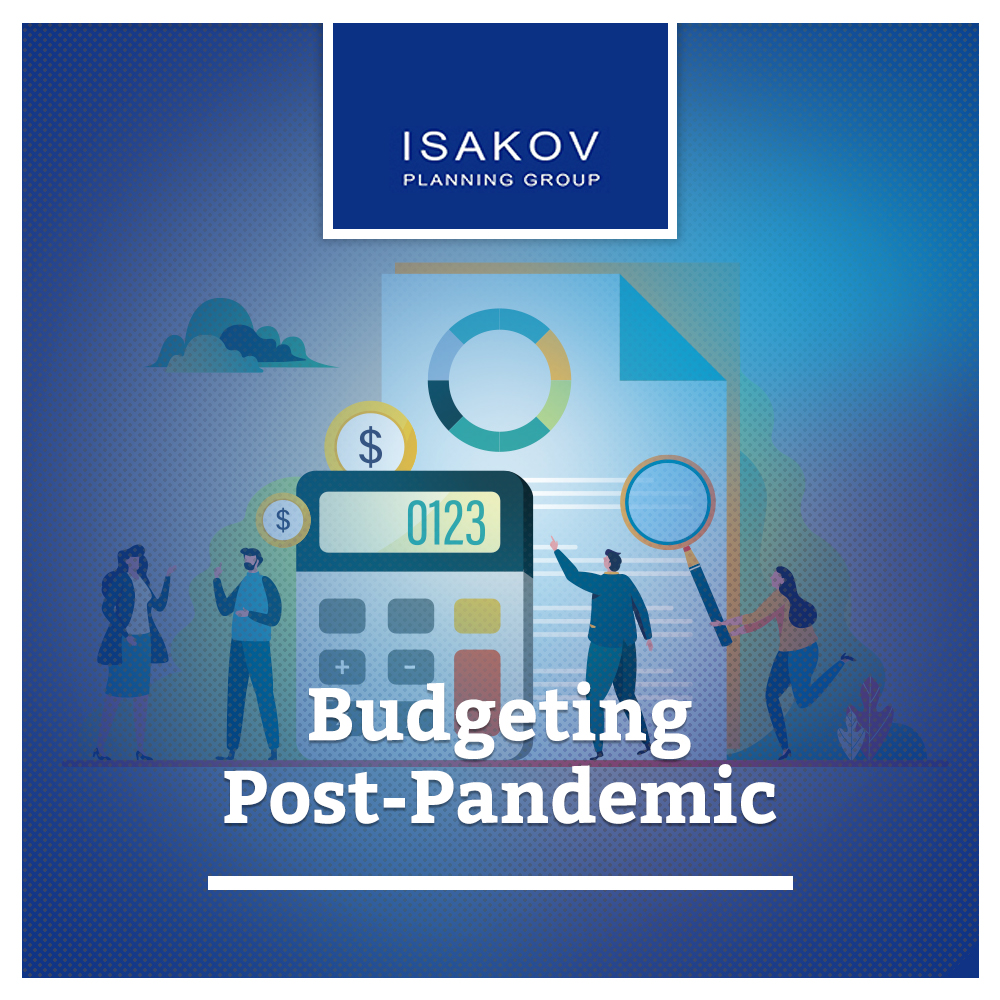Learning From the Pandemic: Be Proactive in Your Budgeting Plans

As our localities lift restrictions and open more fully, the COVID-19 pandemic will eventually cease becoming the dominant theme of our daily lives. The COVID-19 pandemic changed a lot of people’s plans, because it affected their ability to save money, plan for the future, and pay their ordinary expenses. If you’re like me, you may be eager to break out of “pandemic thinking.” For many, the pandemic was a painful financial learning experience. Loss of jobs, cuts in hours worked, significant slowing of business, and children schooling at home resulted in big impacts on our monetary reserves.
Looking back on the pandemic, many people would budget differently to prepare for another emergency situation. For example, can you access six or nine months of financial reserves if needed? As we transition back to a new post-pandemic normal, it may be the right time to review their financial budgets, based on current plans and resources.
Budget From the Beginning
Starting this process is easier than you think. First decide on the timeframe that you’d like to consider. Maybe start with a budget that sets its sights on six months to a year from now. Or perhaps a three- or five-year period. This is defined by your greatest priorities: reaching your short-term, mid-term, or even long-term (10 years or more) goals.
Second, list the amount it will take to achieve that goal (that is, building that financial emergency fund).
Third, itemize your resources towards reaching that goal. What current savings do you have? If you will need additional money, how will you fund it? You might be thinking tax refunds, new income streams, or a new job. It may require cutting back on a lower-priority or unnecessary expense or identifying other resources that you can save or invest.
Budgeting is a way to organize your monthly cash flow. The best way to approach this process is to first account for your essential expenses (mortgage payments, utilities, for example) and then decide how your other expenses and income sources fit in. That means maintaining your expectations for savings and investing—not cutting back on them to pay for expenses. For many people, this may be a different way of thinking: they typically calculated how much they can save based on what was left in the monthly budget. Instead, we believe the amount you save should be decided first, and the other line items should be dependent on this savings amount.
Finally, revise those numbers until they work for you, your priorities, and your resources. Your discretionary spending—on clothing, merchandise, and consumables—can change. Your essential spending—housing, fuel, and utilities—usually do not.
Is your budget still coming up short? At Isakov Planning Group, we enjoy helping people like yourself get a handle on their budget, and prioritize their spending plan. There may be ways to adjust savings and spending throughout the year. We can help you look for those opportunities and move you away from a pandemic mindset. Contact us today.
